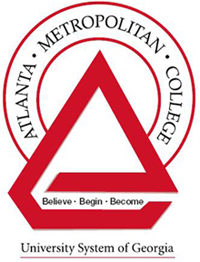By Kenja McCray, Associate Professor of History, Atlanta Metropolitan State College
Several images flash across my mind’s eye when I reflect on THATCamp Historically Black Colleges and Universities (HBCU) 2012, which was held at the Atlanta University Center’s Woodruff Library, and which was my first.
Overall, I imagine the experience as a gateway which helped provide access to various enriching opportunities. The THATCamp “portal” primarily provided a way for my Atlanta Metropolitan State College (AMSC) colleagues and me to access a professional development opportunity which was both engaging and helpful.
The broader digital humanities provide students access to necessary tools, knowledge, and information via many avenues which assist them to navigate the digital divide and to reach their educational goals while also experiencing personal transformation through exposure to various avenues for enrichment of their personal knowledge. Finally, through interactions with colleagues in THATCamp (HBCU) sessions, I was able to envision digital humanities as a bridge between cultures, thus helping to make the world a much smaller venue for information sharing between seemingly disparate people who might be empowered by processes of developing digital and cultural connections to one another.
 The THATCamp “portal” primarily provided a way for my AMSC colleagues and me to access a professional development opportunity which was engaging. In these tough economic times colleges in the University System of Georgia (USG) faced deep budget cuts. As a result, AMSC had to scale back its financial support for faculty and staff development. In search of personal opportunities for quality, affordable professional development, I was excited when my alma mater, Spelman College, posted THATCamp (HBCU) registration information via a popular social networking web site. Initially, I was worried I would not be able to participate, as AMSC is not an HBCU but it is a predominantly Black institution (PBI).
The THATCamp “portal” primarily provided a way for my AMSC colleagues and me to access a professional development opportunity which was engaging. In these tough economic times colleges in the University System of Georgia (USG) faced deep budget cuts. As a result, AMSC had to scale back its financial support for faculty and staff development. In search of personal opportunities for quality, affordable professional development, I was excited when my alma mater, Spelman College, posted THATCamp (HBCU) registration information via a popular social networking web site. Initially, I was worried I would not be able to participate, as AMSC is not an HBCU but it is a predominantly Black institution (PBI).
I knew it was important for me to tap into the opportunity to learn more about the area of digital humanities. This, I believed, would help me better teach my majority-minority United States history students and to help them get access to the latest information and Continue reading









